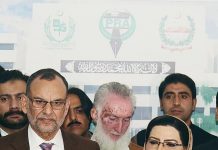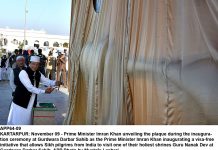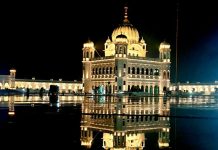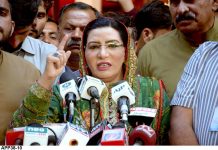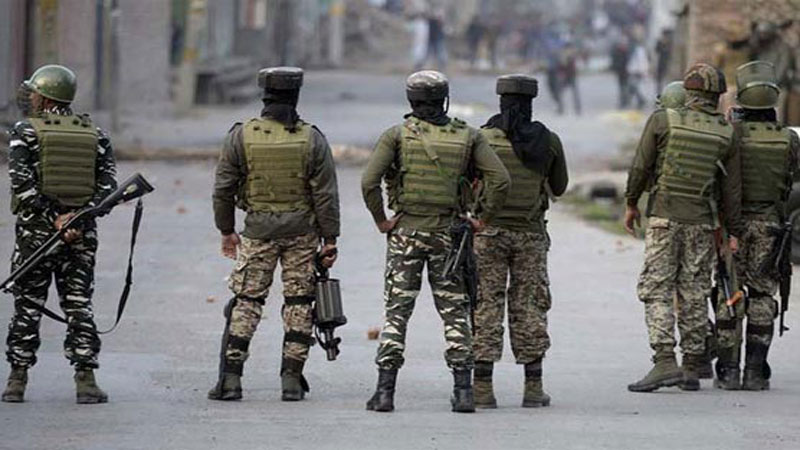
The black day is used to express a complete dissociation with India because of its illegal occupation of the valley for the past 73 years and for turning it into the world’s largest prison since August last year when New Delhi revoked the region’s special status.
Hurriyat leaders said in a statement that India had been illegally occupying the valley for the last 73 years. “India has turned Kashmir into a prison, immobilizing more than more eight million people,” they said, adding that ever since New Delhi revoked the special status of the region on August 5, the Muslim majority area of the valley has remained under a complete lockdown. “Kashmiris are laying their life down for our right to self-determination,” they said, adding that India’s attempt to change the status and demographics of occupied Kashmir was against UNSC resolutions.
Authorities enforced a security lockdown and cut off internet access in Indian Illegally Occupied Jammu and Kashmir on Saturday, fearing protests in the occupied region on India’s 74th Independence Day. Mobile internet services were snapped and stringent security arrangements enforced in the early hours of the day to thwart any potential incident. Streets in the region wore a deserted look as people largely remained indoors amid heavy deployment of police and paramilitary troops.
Anti-India rallies followed by protest demonstrations in all small and major cities and towns on both sides of the LoC were the hallmark of the day, an Azad Jammu and Kashmir (AJK) government spokesman said. He added that the participants of the protest rallies wore black bands around their arms as a sign of their protest against India while black flags were hoisted atop private and public buildings by the protesting Kashmiris.
In AJK, anti-India rallies were staged and processions held in all small and major cities including Muzaffarabad and all other nine district headquarters of Mirpur, Kotli, Bagh, Bhimbher, Palandri, Rawalakot, Haveli, Jhelum Valley and Neelam valley. The participants of the rallies marched in major city streets carrying black banners and placards to express their anger over India turning occupied Kashmir into the world’s largest prison and the continuing brutalities and human rights abuses in the occupied state since August 5 last year.
Chairman of UK-based Kashmiri rights outfit Global Pakistan Kashmir Supreme Council (GPKSC), Raja Sikander Khan told media in London on Friday that his organisation had secured formal permission from the concerned British authorities in London to hold the scheduled black day protest in front of the Indian High Commission on August 15. “It would be a great opportunity for us to send our message to all diplomats, the world over,” Khan said.
Mohammad Muneeb, a political science scholar in the occupied region, told Anadolu Agency that the Indian administration’s steps over the past year are not acceptable to the people of Jammu and Kashmir. “The development that they are touting is clear for all to see. Businesses are gasping for survival, the economy is down, schools are shut, people have lost their jobs, and worse of all, people are dying due to the incessant violence and the COVID-19 pandemic,” he said.






